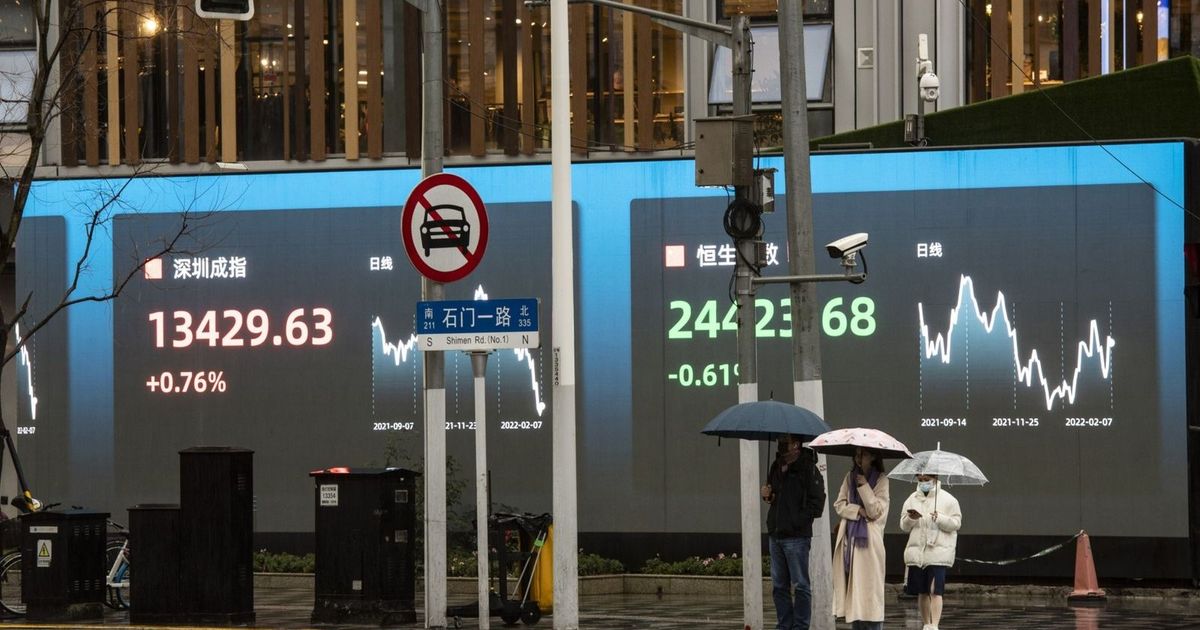Chinese stocks have fallen while the futures of the mortgage have risen, reflecting the continued concern of investors on trade tensions, despite US President Donald Trump indicating this weekend that he is open to Beijing dialogue. The Hang Seng index of Chinese businesses fell 3.1% in Monday, with the decline in shares of major technology companies such as Alibaba Group and Tencent Holdings, which put the index under pressure. The CSI 300 index, which is the most important measure of shares listed on the continent, also dropped by 2.7%. The People’s Bank of China has increased the Yuan’s daily reference exchange rate to its strongest level since November, in an effort to maintain the stability of the currency. A decrease that reflects the fragility of the trade stuce. This decline comes after a sharp increase in Chinese equities this year, as investors have ignored trade friction and bet on the strength of the country’s technological sector and Beijing’s ability to support the economy. Trump’s threat at the end of last week to compile an additional 100% tariffs on Chinese goods, in response to Beijing’s restrictions on the execution of important minerals, was a clear reminder of how fragile any trade between the two parties. The decline was less severe than the 6.1% decline in the Nasdaq Golden Dragon China index on Friday. It seems that some investors have used the sale wave to take advantage of the buying opportunities, and expect to avoid the worst after indications of the White House that they were ready to reach an agreement. “Markets need volatility in short term due to tariff headlines, but China’s diversified export base and fast policy response mean that the broader impact on the economy and markets will remain limited,” says Dylan Wu, an analyst at Peppperstone Group. He added: “Traders can consider it a temporary shock rather than a structural threat.” The fear of long -term decline a consequences in the relationship between the world’s two largest economies can undermine the performance of one of the world’s best stock markets this year, and revive the doubts about the attraction of China’s investment. The Hang Seng China index rose about 30% from the beginning of 2025 to Friday, which benefited from trading resistance with the United States and optimism about the expansion of artificial intelligence. Technology shares were one of the most striking winners, as Alibaba’s share price has more than doubled. Unlike the general wave of decline, shares of Chinese chip manufacturers have risen, amid betting that Beijing will strengthen its efforts to limit the import of US technology and strengthen local businesses. Semiconductor Manufacturing International Corp. Shares rose 6.1% on the continent. Rare earth stocks have also earned profits, with China using these resources as a large trade lever. Currency stability and Chinese bonds are rising in the foreign exchange market, the foreign Yuan rose 0.2%, which wiped out its losses from Friday. The People’s Bank of China on Monday determined the exchange rate at 7,1007 yuan per dollar, a level higher than economists expected in a Bloomberg recording. Chinese bond futures have also risen, amid a trend to safe assets, and contracts of thirty years increased by 0.7%. “The exchange rate like this is a strong sign that the People’s Bank of China, despite Trump’s threat to set up 100% rates on China, does not allow the yuan to fall, and intends to maintain the stability of the exchange rate,” says Khun Goo, head of Asia research in Anz in Singapore, and adds it to ” -Marks to calm down today. ” Indications of economic resilience and limited optimism Some analysts believe that any downward pressure on the market will be taken up by investors who missed this year’s profits, while the data showed that Chinese companies exported more well last month than expected, as exports increased by 8.3% in September compared to last year, which exceeded the expectation of 6.6% in a Bloom mountain. Francis Tan, head Asia strategist at Indoso Wealth in Singapore, said the new round of escalation between the United States and China “will quickly cause pressure on Chinese shares, but this is a great opportunity to increase positions for those who do not have enough part of the Chinese market in their portfolios.” He added, “The correction will be healthy for Chinese shares after the strong profits they have achieved since the beginning of the year.” Negotiations and focus on export control negotiations between Beijing and Washington are currently focusing on export control, as the United States limits the shipping of semiconductors and artificial intelligence chips that China needs, while Beijing limits the export of important materials and magnets in America. Investors are also awaiting a closed meeting of the Chinese Communist Party held between October 20 and 23 to review development plans for the next five years. After the end of a summer that saw two of the worst months of retail sales this year, provisional data showed an extra decline in the consumer demand during the Golden Week holidays that began on October 1, reflecting the continued cooling of consumer muides despite the significant increase in equities.
Chinese stocks still decline despite Trump’s sign of calm
